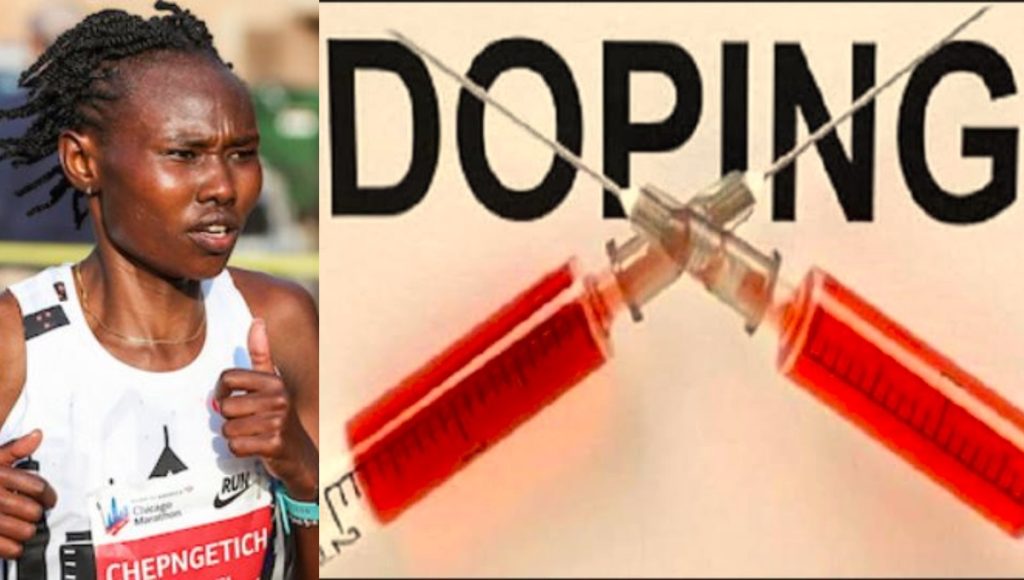Kenya’s celebrated legacy in athletics is under serious threat following a surge in doping cases that has rocked the nation’s sporting world. According to the Anti-Doping Agency of Kenya (ADAK), by July 2023, 192 reported cases of athletes from both genders and multiple sport have been sanctioned for doping violations since the implementation of the Anti-Doping Act in 2016, the highest number in the country’s history with 162 cases closed by mid 2023 and others in progress.
The most recent and heartbreaking case involves world marathon record holder Ruth Chepngetich, who has been provisionally suspended by the Athletics Integrity Unit (AIU) after testing positive for hydrochlorothiazide during a doping control on March 14, 2025. Hydrochlorothiazide is a diuretic (commonly referred to as a “water pill”) that is often prescribed to treat high blood pressure by helping the body eliminate excess fluid and relaxing blood vessels. However, it can also be used to mask the presence of other banned substances making it a red-flag substance in competitive sport.
Chepngetich made headlines last year after smashing the women’s marathon world record with a time of 2:09:56 at the Chicago Marathon. Although she retains the right to defend herself before a Disciplinary Tribunal, the news has added to Kenya’s growing list of doping scandals, casting a long shadow over the country’s athletics reputation, which is already listed as a “Category A” risk nation by the World Anti-Doping Agency (WADA).
Below is the WADA 2025 Prohibited List of substance which includes, but is not limited to, the following categories of banned substances and methods:
1. Anabolic Agents – e.g., nandrolone, testosterone.
2. Peptide Hormones – such as erythropoietin (EPO) and growth hormone.
3. Beta-2 Agonists – asthma medications, restricted beyond certain thresholds.
4. Stimulants – including amphetamines, cocaine, and ephedrine.
5. Glucocorticoids & Cannabinoids – banned in-competition under specific conditions.
6. Narcotics & Beta-Blockers – restricted in certain sports.
WADA has repeatedly warned that even everyday medications, including those for asthma, allergies, or common colds, may contain substances that are banned in sport. Athletes are strongly advised to consult medical experts, team doctors, or refer directly to the official WADA guidelines to avoid unintentional violations. Ignorance, WADA stresses, is not a defense.
A full and updated list of Kenyan athletes who are either provisionally suspended or fully sanctioned for doping violations is available via the Athletics Integrity Unit’s official “Global List of Ineligible Persons,” which can be accessed through the AIU or ADAK websites.
As Kenya continues to produce world-class athletes, the nation now finds itself at a crossroads one where integrity, education, and strong enforcement must prevail to safeguard the future of its sporting heritage.
Written by Fabian Kibet












